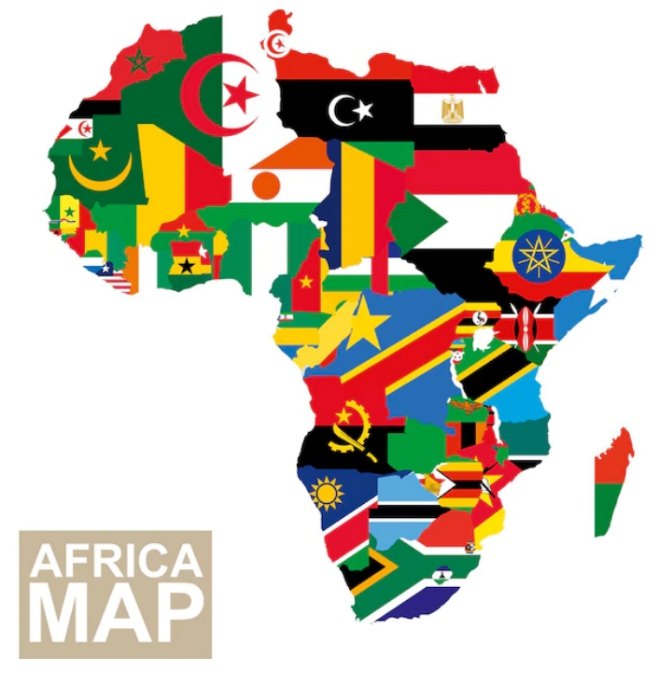Agency Report
The current debt crisis rocking Ghana, has occasioned grave concern on the African continent lately.
Despicably, therefore, the current debt crisis that is currently rocking Ghana, which has seen the country suspending interest payments on most of its foreign debts, including its Eurobonds, has brought to the fore the need for circumspection in the management of African economies.
Ghana had said the suspension of interest payments on debt servicing was an interim emergency measure pending future agreements with all relevant creditors.
But to resolve its fiscal challenges, the Ghanaian government has taken a number of rather drastic measures. First, it entered into talks with the International Monetary Fund for a $3 billion facility to enable the country to restore macroeconomic stability and debt sustainability. Talks between the government and fund’s officials ended by mid-December, with a staff-level agreement, which means that subject to board approval in early 2023, Ghana will receive the facility.
However, the situation in Ghana is taking a large toll on the government and putting so much pressure on the entire nation. This has forced the government to take further drastic actions. It announced on December 4 a domestic debt exchange under which it said all existing bonds as of December 1, 2022, would be replaced by a set of four new bonds that mature in 2027, 2029, 2032, and 2037. It said holders of the new bonds will receive zero coupons in 2023, 5% in 2024, and 10% in 2025, until maturity.
The government has blamed its sour economic situation on the impact of the Russia-Ukraine war, which, according to it, adversely affected the economy just as it was about to recover from the impact of COVID-19.
To many observers of Ghana’s economic trajectory, this turn of events did not come as a surprise. They witnessed the rise in the country’s indebtedness over the past six to seven years, as the cocoa, gold and now oil-producing country embarked on a debt spree, in part to develop its infrastructure to support higher levels of economic activities.
This worked for a while, but things began to turn sour when revenue began to fall and debt repayments soared so much so that the country fell into the situation that economists describe as a debt trap. The country has found itself in a situation where debt servicing takes over half of the total government revenues and almost 70 per cent of tax revenues, while its total public debt stock, including that of state-owned enterprises and all, exceed 100 per cent of GDP.
Ghana’s default comes two years after Zambia defaulted on its $42.5m Eurobonds repayments in November 2020 during the COVID-19 crisis. Like in the case of Ghana, as the Southern African economy recorded high growth rates over a decade ago, the government in office at that time embarked on an expansionary fiscal policy funded by both local and international debts. The borrowing grew so much that the debt-to-GDP ratio rose from 91.6 per cent in 2019 to 104 per cent in 2020.
The latest experience of debt default being experienced in Ghana coming soon after Zambia’s experience lends credence to the call for a new economic order for the African continent. A situation where Africans cannot buy the goods they want with their currencies, but depend on the currencies of other continents, must change.
The call is hereby reiterated for alternative systems of payment for imports to be developed that will make use of African currencies
The opinion here is for the promotion of industrial development at home. African nations must strive through consistent policies to engender sustainable industrial development in their countries and by extension, across the continent. This will potentially increase the production of goods and services at home.
The above arrangement will easily dovetail into an integration of the African economies through the promotion of intra-Africa trade. This should be a direct result of the AfCFTA that came into effect almost a year ago. Africa’s industrial development has taken too long in taking off, a situation that has left the continent as a perpetual importer of even the lightest manufactured goods.
Besides other benefits, such as an increase in the employment of labour, it will reduce the unnecessary dissipation of the little foreign exchange that accrues to the continent by way of earnings from exports. Intra-African trade should be conducted in African currencies to stop or reduce the hemorrhage of foreign exchange earnings from the continent.
It is also a matter of urgent call on negotiators working on behalf of African nations on matters as sensitive as debt to be strategic and nationalistic in their approaches. They should realise that at such negotiation tables, their counterparts are there to exact the maximum gains they can from the transactions.
It is commendable that in the handling of its debt crisis, the Ghanaian government has been open with the citizens by effectively communicating the situation. This is not always the case in many governments in Africa, where vital information is sometimes hidden from the citizens.
The Nigerian government should take a cue from this. It should at every point in time carry the citizenry along on decisions or issues affecting the country, and by implication, them.




